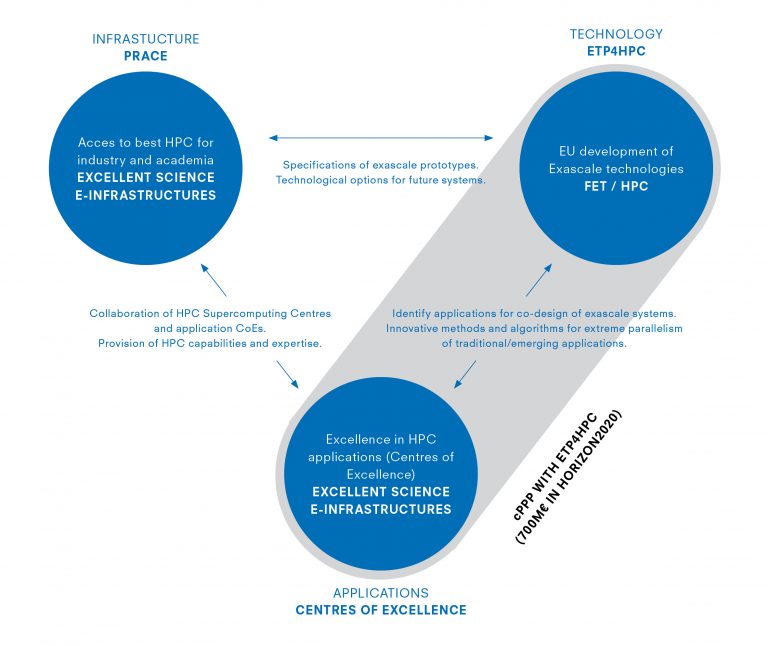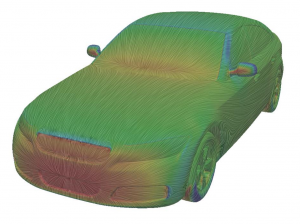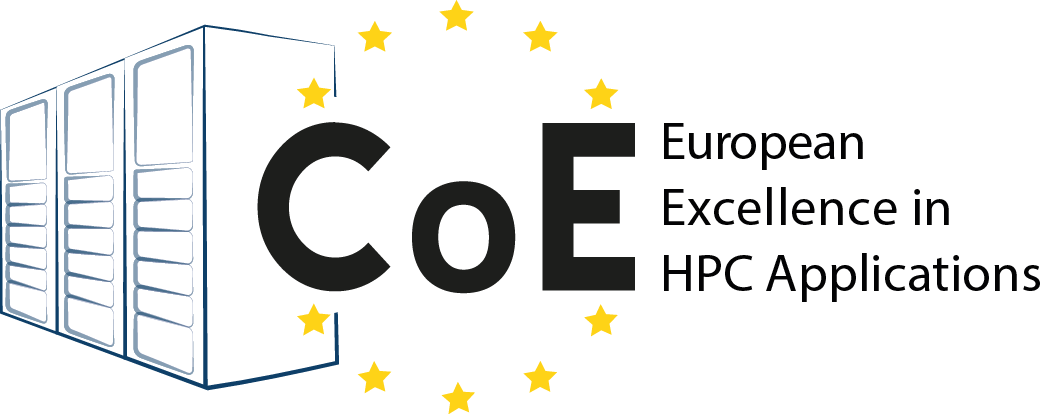
Frequently Asked Questions
High-performance computing (HPC) refers to systems with extremely high computational capabilities. They involve hundreds of thousands of processors working in parallel to analyse billions of pieces of data in real-time. Today’s most powerful systems can perform calculations thousands of times faster than a normal desktop computer. The European Union has recognised high performance computing as a key component of the digital single market strategy.
High-performance computer simulations provide important insights to predict the behaviour of processes and products in many areas of science and engineering. It provides important tools, e.g. to the automotive industry, aerospace, biotechnology, environmental science science including climate research, medical technology, intelligent manufacturing, engineering among many others. The fastest computers in the world today are already incredibly powerful. Nevertheless, many scientific and industrial challenges demand still more computing power, for instance bioscience, engineering or material design.
Over the last decades, the availability and usability of HPC systems has become one of the determining factors for the progress of science and a strategic resource for Europe’s future. The accuracy of the analysis, the quality of the results and the potential of national and international collaborations in science and industry are more and more depending on the available computing infrastructure. Mastering advanced computing technologies from hardware to software has become essential for innovation, growth and jobs.
Over the last decades, the availability and usability of HPC systems has become one of the determining factors for the progress of science and a strategic resource for Europe’s future. The accuracy of the analysis, the quality of the results and the potential of national and international collaborations in both science and industry are more and more depending on the available computing infrastructure. Mastering advanced computing technologies from hardware to software has become essential for innovation, growth and jobs.
For the European Commission, HPC needs an EU-level policy to optimise national and European investments, addressing the entire HPC ecosystem. Therefore, its HPC Strategy was adopted in 2012 and implemented in the biggest EU Research and Innovation programme Horizon 2020.
Based on contractual Public-Private Partnership on HPC (cPPP on HPC), a strong cooperation with the HPC stakeholders is set up and developed an ambitious Research & Inovation funding strategy, addressing the following aspects:
- HPC facilities via the Partnership for Advanced Computing in Europe (PRACE), established since October 2012
- HPC technologies via the Future and Emerging Technologies (FET) programme, represented by the the European Technology Platform for HPC (ETP4HPC)
- and HPC applications via the establishment of Centres of Excellence (CoEs); the CoEs are funded via the e-infrastructures programme which aims to address the needs of European researchers for digital services in terms of networking, computing and data management.
These three pillars are building the European HPC Ecosystem.

The European Centres of Excellence (CoEs) for high-performance computing are promoting the use of upcoming exascale and extreme performance computing capabilities, prepare the existing parallel codes for this next generation of supercomputers and provide e.g. consulting and training. The CoEs cover different areas, from engineering and renewable energy to Big Data science and bio-molecular research.
There are currently 14 CoEs that got selected by the European Commission under different research infrastructure calls: BioExcel, ChEESE, CoEC, CompBioMed, E-CAM, EoCoE, ESiWACE, EXCELLERAT, HiDALGO, MaX, NOMAD, PerMedCoE, POP2, and TREX
Focus CoE is contributing to the success of the European HPC ecosystem and the EuroHPC Initiative by supporting the CoEs to more effectively fulfil their role within the ecosystem and initiative: ensuring that extreme scale applications result in tangible benefits for addressing scientific, industrial or societal challenges.
Focus CoE is doing this by creating an effective platform for the CoEs to coordinate strategic directions and collaboration. It addresses possible fragmentation of activities across the CoEs and coordinates interactions with the overall HPC ecosystem. It provides support services for the CoEs in relation to both industrial outreach and promotion of their services and competences by acting as a focal point for users to discover those services.
This website was created as part of the project FocusCoE. The goal of the website is to provide an overview over the work and the services of the European Centres of Excellence (CoE) in High-Performance Computing. It shows latest news from the CoEs on the front page, provides information on what services the CoEs have to offer and provides calendars with important training and HPC events.

